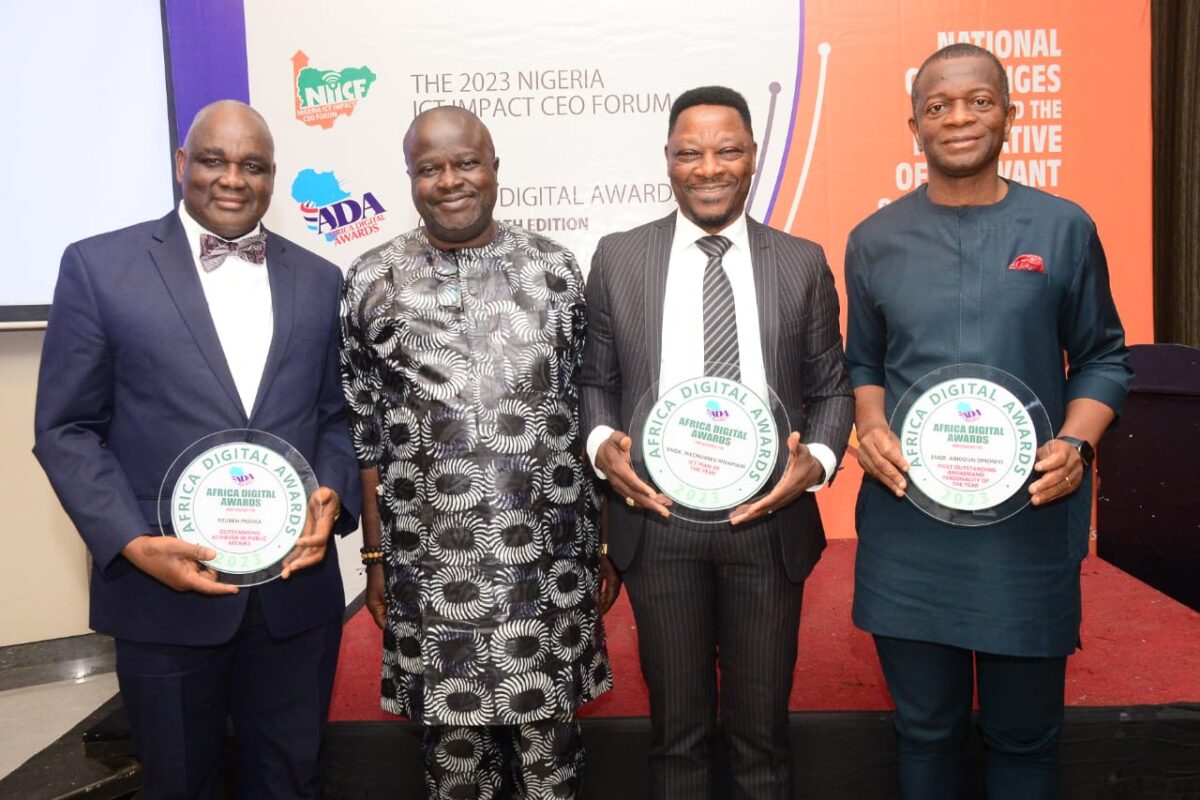NIICF 2023: Stakeholders push for localization of data to boost economy

NIICF 2023: Stakeholders push for localization of data to boost economy

NIICF 2023: Stakeholders push for localization of data to boost economy
Stakeholders in the Nigerian Information and Communication Technology (ICT) industry at the weekend converged on Lagos where they called for the localization of data for Nigeria to benefit from the data center economy.
According to the stakeholders, despite playing host to many data centers, Nigeria has not been reaping the expected benefits because a lot of the country’s data is still being hosted abroad. This is even as they noted that the strong growth of Africa’s digital economy would drive more demands for data centers in the continent.
Presenting a paper on the theme of the conference, ‘National Challenges and the Imperative of Relevant and Timely Data, the Chief Executive Officer of Digital Reality, Engr. Ikechukwu Nnamani examined the Data Centers Services in Nigeria as a case study. He observed that while Nigeria appears to be doing well in telephony, in the area of facilities that drive the digital economy, of which data center is one, Nigeria is way behind other countries.
He added that while the country has the largest potential from data centers, the country is currently lagging behind the smallest countries in Africa in terms of economic benefits. According to him, as of 2020, data centers contributed an estimated 5.6% to Nigeria’s GDP, while in Kenya, it contributed 7.7% to the country’s GDP the same year.
He said data center contribution to GDP has also been forecast to contribute 9.2% to Kenya’s GDP in by 2025, while in Nigeria it is expected to contribute 6.9%. He said the country would have to change the current trend of hosting abroad and embrace local hosting to reap the economic benefits of investments in data centers in Nigeria.
In his Lead paper at the forum, the Group Managing Director of VDT Communications, Mr. Abiodun Omoniyi, examined the importance of big data for Internet Service Providers (ISPs) in Nigeria. According to him, in today’s digital landscape, Big Data plays a pivotal role in shaping the operations of ISPs. He added that the intricate relationship between Big Data and the Internet has paved the way for ISPs to utilize analytics in unprecedented ways, transforming the customer experience and optimizing network efficiency.
He, however, noted that the use of Big Data raises concerns about privacy, hence, ISPs must implement robust privacy measures and transparent policies to address these concerns.
Meanwhile, the Executive Vice Chairman of the Nigerian Communications (NCC) Aminu Maida presented the keynote at the forum with a focus on the telecom regulator’s efforts to deepen broadband penetration in the country. Maida, who was represented by the Commission’s Director of Public Affairs, Reuben Muoka, said broadband or high-speed Internet access allows users to access the Internet and Internet-related services at significantly higher speeds than those available through “dial-up” services.
Highlighting the efforts of the regulator in this regard, Maida said:
“As the regulator of the nation’s highly dynamic telecommunication industry, the Nigerian Communications Commission (NCC) has, over the years, put several regulatory frameworks in place towards ensuring incremental broadband deployment for available, accessible, and affordable connectivity to telecoms consumer. Post-pandemic, the NCC, working with various stakeholders has continued to explore ways to sustain the growth of broadband networks to address identified digital gaps (demand and supply sides) highlighted by the pandemic and consider steps to overcome these challenges, especially in terms of addressing the digital divide.
“Through various policy directions, especially the Nigerian National Broadband Plan (NNBP) 2020-2025, the Nigerian government has set out ambitious targets accompanied by timelines that aim towards making broadband an enabler of economic growth across all sectors in Nigeria.
“Although limited access to high-speed service, lack of advanced IT skills, funding, inadequate infrastructure among several other factors have been identified as the major constraints slowing Nigeria’s internet economy, Nigeria has demonstrated commitment and passion, through various policy and regulatory frameworks, to ensure wider broadband coverage for the country. This is because the data revolution presents great potential and opportunity for the socio-economic development of Nigeria.”
He reiterated the commitment of the Commission to supporting the strategic blueprint of the supervising Ministry and the Renewed Hope Agenda of the current administration by stimulating stronger broadband infrastructure that extends beyond connecting people but also focuses on economic empowerment and creating opportunities for inclusion.
The high point of the forum was the presentation of the Africa Digital Awards (ADA) to outstanding corporate organizations and individuals that are positively impacting the ICT industry.
Do you find Tmaq Media useful? Click here to give us five stars rating!



















